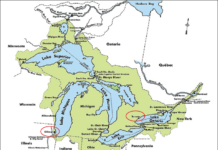Net neutrality and the issues that surround it have been thrown into sharp relief in the past year. News agencies offer a never-ending stream of updates, tech companies constantly remind us of the issue’s importance, and the subject has been popularized by media figures such as John Oliver. The most recent surge came from the president’s statement last week that called for “the strongest possible rules” to protect net neutrality.
The vast majority of coverage on the subject has been from an American perspective and, although the laws in question fall under U.S. jurisdiction, the Internet is decidedly global. This week, we’re going to take a look at the primary differences between the respective regulatory systems and look into how a ruling in the U.S. could affect Canada. If you don’t have any background knowledge on the subject, I encourage you to do some research.
Why is this even an issue in the U.S.? In 2002, the Federal Communications Commision (FCC) classified the Internet as an “information service” instead of a common carriage system. The distinction is that common carriers (in this case Internet Service Providers (ISPs)) must offer their goods and services on a non-discriminatory basis. Utility providers and telephone companies are the best examples of common carriers under the current system in the U.S. Despite its classification, the net has managed to stay relatively neutral in the U.S. over the past 12 years. In 2010, the FCC passed Open Internet regulations to cement this imposed disclosure, non-discrimination, and anti-blocking on telecom companies.
In late 2013, Verizon sued the FCC over its right to uphold its 2010 regulations, and, in January of this year, won. The court ruled that the FCC couldn’t enforce its policies because they were only fairly applicable to common carriers, not information services. The following months saw Comcast legally pressure Netflix into paying them for the magnitude of traffic the website is responsible for (in other words, extort them for good service).
In response to the court’s ruling, FCC chairman Tom Wheeler proposed new net neutrality regulations. Far from addressing the problem, these new regulations fanned the fire and in the roughly five months that the FCC allowed public comments, approximately 3.7 million Americans weighed in.
The FCC is currently weighing its options under ever increasing pressure from the public and the government. Wheeler recently stated that the FCC would need months before it could release legislation that it’s happy with.
While the U.S. is grappling with now-archaic (at least on a tech scale) decisions, our protection of net neutrality has had a smoother history. The highly simplified overview of Canada’s net neutrality laws is that they’re pretty good. The most popular proposed solution to the debate in the U.S. is to reclassify ISPs as common carriers. In Canada ,they have always been classified as such, meaning that Canadian ISPs treat all traffic equally. Additionally, in 2009, the Canadian Radio-television and Telecommunications Committee (CRTC), Canada’s regulatory body in charge of telecommunications services, released legislation that made it very difficult for ISPs like Bell and Rogers to operate Internet fast lanes.
The ruling was, according to the CRTC, the first of its kind to specifically address Internet traffic management practices, or, in less dry terms, the ability of ISPs to throttle data from specific sources. It asserted that, while they were still allowed to slow down some connections, they can do so only as a last resort. There is, however, a caveat. The CRTC will only look at connections between retail (household and individual) customers and the ISP if there is a complaint, meaning that Canadian ISPs can, and have, throttled individual connections.
In 2012, Rogers was found in violation of net neutrality laws after it throttled connections from gamers playing <em>Call of Duty: Black Ops</em>. The most recent and largest case was filed in November of 2013 against Bell and has since been expanded to Rogers and Quebecor Inc.’s wireless business Videotron. The CRTC must decide if the practice of offering specific content, in the form of, for example, Bell Mobile TV, that is not subject to the data limits of standard streaming, is a violation of their regulations. Why is this controversial? Bell charges $5 a month to view up to 10 hours of video on their Bell Mobile TV app, whereas the equivalent content (roughly 5GB), viewed on another app, Netflix say, would cost you $40. That’s not exactly an Internet fast lane, but it is heavy prioritization of Bell’s services as a content provider as well as an ISP.
The Mobile TV case is certainly important — a win for telecom companies could embolden them to take steps towards a less neutral web — but it does not bear the same “future of the Internet” burden that the debate in the U.S. does. But you should still care a lot about the outcome south of the border.
First, should the FCC pass regulations that encourage U.S. telecom companies to offer tiered services (fast and slow lanes) it will likely encourage Canadian ISPs to reopen the issue. Second, and more tangibly, a large portion of the data that you receive from your Canadian ISP already travels from and through American servers and networks, and if U.S. telecom companies were to develop a fast lane for customers willing to pay more, this could put Canadians into the slow lane. The other side of this is that most Canadian web and mobile companies also offer their services in the U.S. and would have to pay to compete.
Net neutrality is, other than a few bumps in the road, looking pretty good in Canada, but it is important to stay weary. ISPs are currently unable to do anything particularly egregious, but they also aren’t exactly known for low prices and healthy competition. As the debate unfolds in the U.S., it may re-emerge in Canada, and even if it doesn’t, Canadians may have to brace for slower speeds from their favourite websites.































